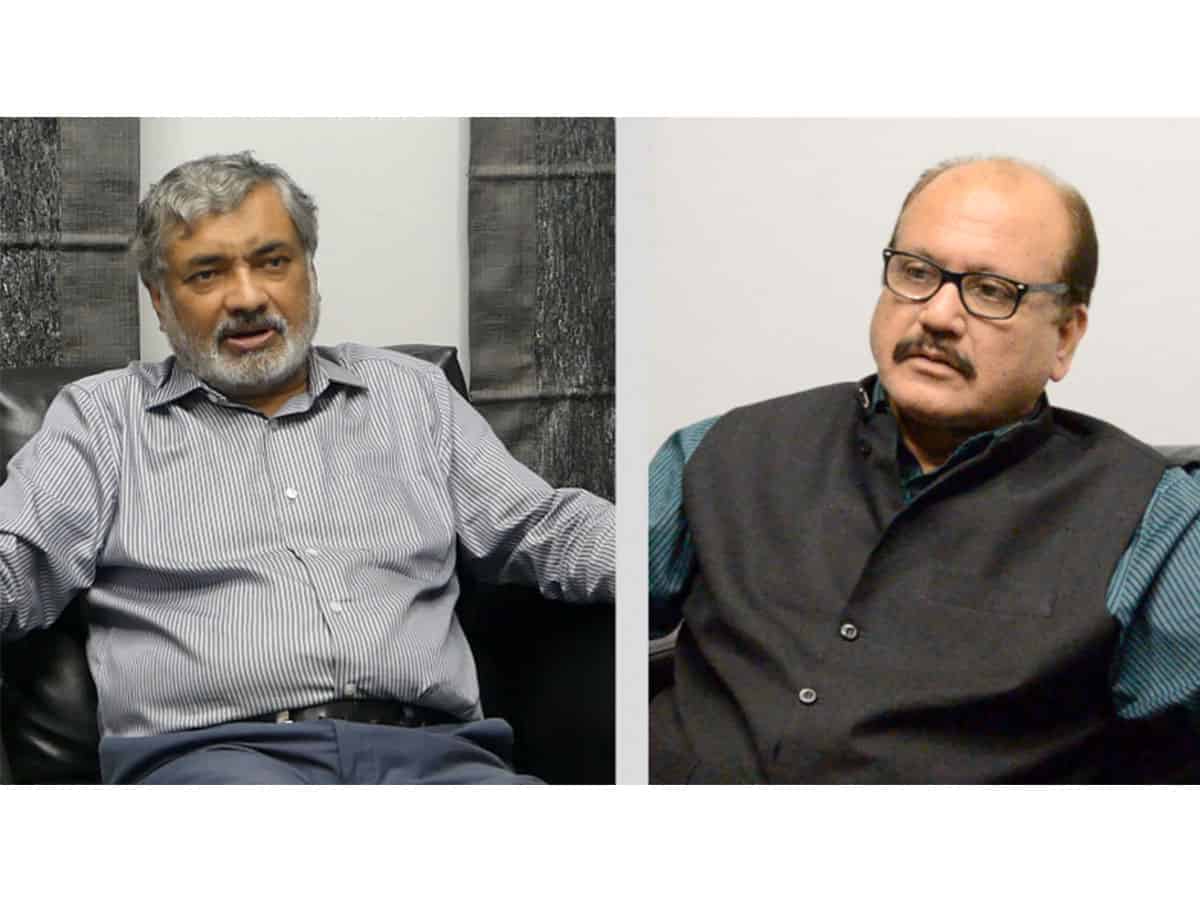Daneesh Majid
After the accession of Hyderabad, the Muslims of the erstwhile Princely State were left in a precarious state — socially and economically. The division of Hyderabad on linguistic basis really didn’t exactly help either.
Besides fending off feudal hangovers or curbing the complaints about their clout, Hyderabad’s diaspora was among the many boons for the resurgence of the city’s Muslim as well as the non-Muslim population.
“At first the promised land in the diaspora was Britain which was a holdover from the colonial days. Then with employment and educational opportunities blooming in the US, America became the land of opportunity towards the 70s,” says Ziauddin Nayyar.
Nayyar who is President of the All-India Majlis-e-Taameer-e-Millat mentions that after graduating from Nizam College during that decade, he tried procuring admission for post-graduate studies in the States. Although the luster of the US didn’t wane, the scuttlebutt around Saudi Arabia as a possible destination started gaining steam.
Gulf countries are dismissed as barren and unfertile as compared to North American and European pastures whose soil yields “superior” Western culture and more lucrative employment opportunities and currency exchange rates.
He remembers, “Even before the days of the Mumbai, Delhi being air transit hubs for people traveling to and from the Gulf, we used to take ships from Bombay to Jeddah.”
Although he took with him the resolve that is required to make one’s mark as an immigrant in any foreign country, nothing could have prepared him for the news just a few days after his arrival.
Nayyar’s mother had died just a little after he began his journey to the Kingdom. Similar news about his father would soon follow. Yet he kept on trudging.
He doesn’t pull any punches in describing the struggles of many Hyderabadis and other Indians in Saudi Arabia. Although grueling as well, it is only the struggles of Western migrants that are chronicled. That too, be it Karan Johar’s films or Jhumpa Lahiri authored-novels in which the Indian-Americans and British-Indians are synonymous with the term NRI.
Nayyar claims that it took some people one month to get a job while others spent a year to find their anchor. He worked with the King Abdul Aziz University for six months, but it was at the Saudi British Bank (known as the Hong Kong and Shanghai Bank Corporation outside KSA) where his career took off. Remembering the feat to land his job at the renowned bank, he recalls, “A British person interviewed me. He told me that he was sold on my perfect scores in Mathematics and my decent English.”
Of course, certain tales of the discriminatory treatment meted out not just to South Asians by locals, even by those who were their co-religionists, are very much rooted in reality. Yet, Ziauddin Nayyar had it somewhat easy compared to his fellow Indians as he spoke fluent Arabic. Although many in the Gulf get by without knowing Arabic as the language of business at several places was English.
“Overall we were treated better than many Pakistanis and Bangladeshis as their migrant pools were comparatively less educated.” clarifies Nayyar.
As for relations with Pakistanis with whom Indians of various faiths usually get along with on foreign soil they weren’t always excellent. Elaborating about this dynamic he said, “During Bhutto’s time (that is soon after East Pakistan became Bangladesh), Indians and specifically Indian Muslims overseas weren’t exactly looked favourably upon by Pakistanis. They had told Saudi citizens that many Hindus had arrived in Saudi Arabia with fake Muslim names. But of course that was not true. It was part of the canard against Indians.”
It was the hard work of Indians that really destroyed that perception and laid the foundation for some long-lasting cross-border friendships.
Besides his long-spanning career, he was a religious and cultural icon in Jeddah’s Indian diaspora. Whether it was organizing cultural events, liaising between the Indians and the local community or hosting prominent Indians (N. Ram from The Hindu, author and bureaucrat Narendra Luther, or even former MIM leader Sultan Salahudin Owaisi), he was a part of a large overseas community.
“Also, it was common for the Indians in the 1970s to come and play billiards and watch Indian movies on the big-screen at the Indian Consulate premises,” Nayyar recollects.
The Consulate was the space for those missing mixed spaces and cinemas that weren’t regulated or outright prohibited in India. Among the best moments he remembers was the appointment of Hamid Ansari as the ambassador of India to Saudi Arabia. At that time Ansari was serving as India’s Permanent Representative to the United Nations.
Besides maintaining ties with their homeland, the remittances and experiences which the diaspora gained from abroad helped further the educational and economic renaissance of Hyderabad’s Muslims.
For instance, back in Hyderabad, Nayyar is involved with the Hyderabad Zakat Charitable Trust and is the President of the Al-Asr Education Society. The latter group has set up the Mount Mercy School which not only educates, but grooms underprivileged kids for a better future. The Taameer-e-Millat organization of which he is the Vice President funds schools and teachers in far-flung districts in Telangana.
However, when asked about the future of Muslims in India amidst the anti-CAA uproar, he quotes a poet after whom after many academies were named, Allama Iqbal. Mr. Nayyar also happens to be one of the Presidents of one such academy as well.
Mazhab nahi sikhata aapas mein bair rakhna
Hindi hai hum watan hai Hindustan humara


